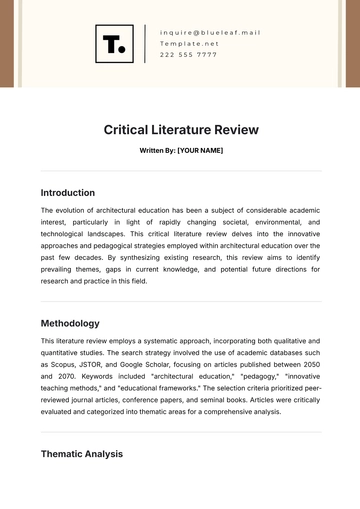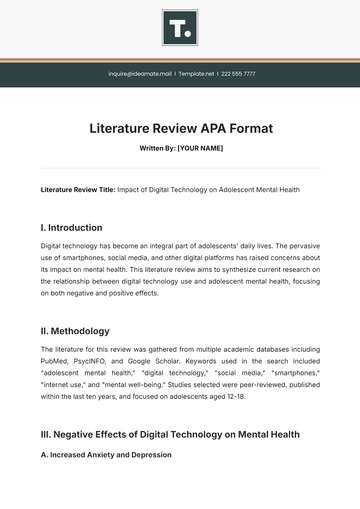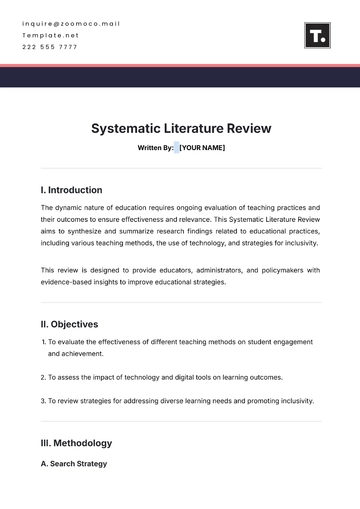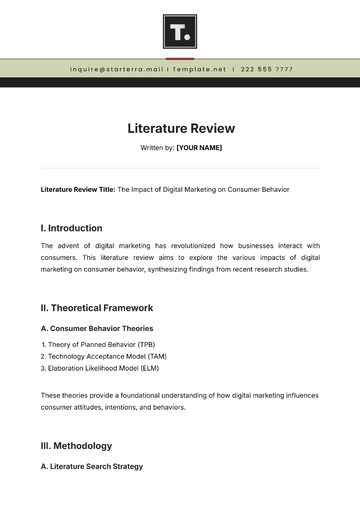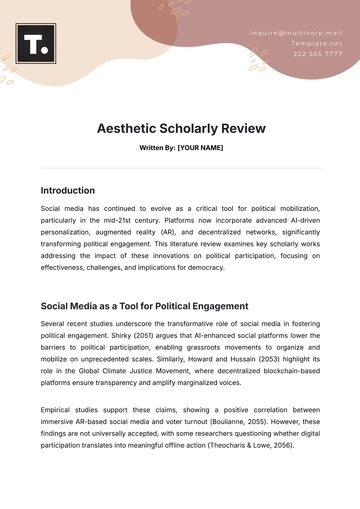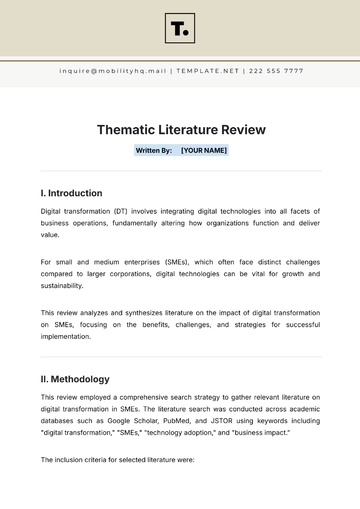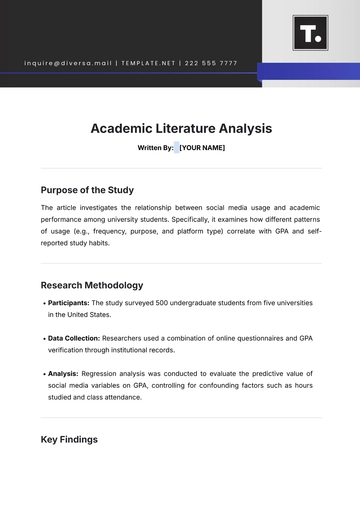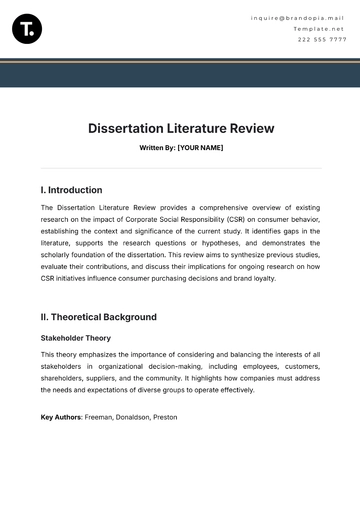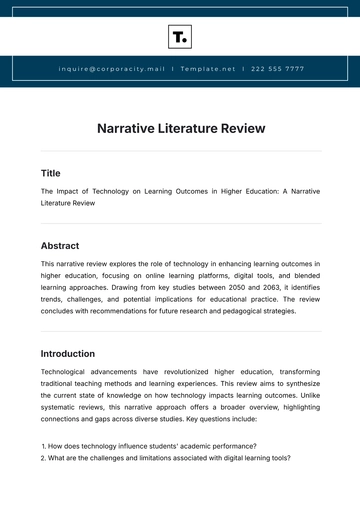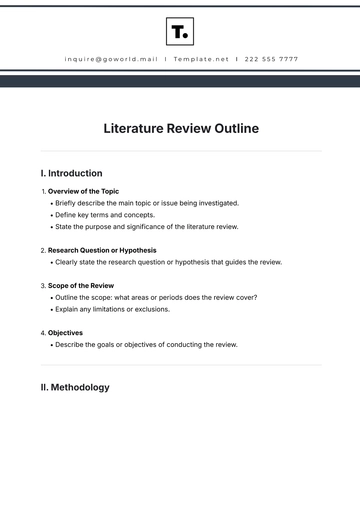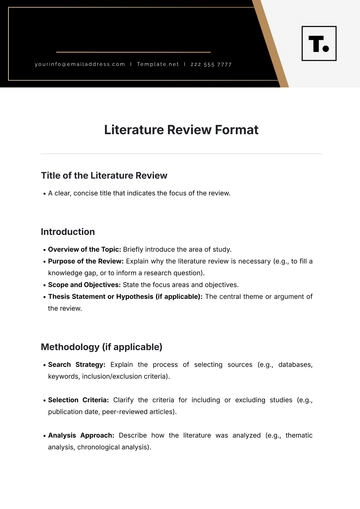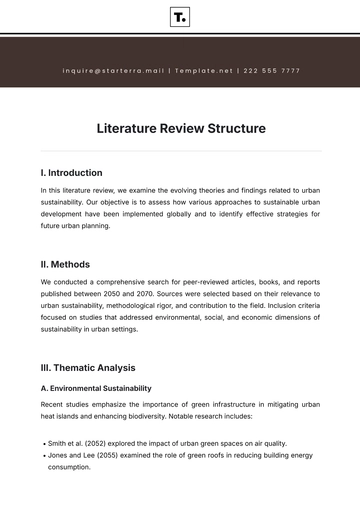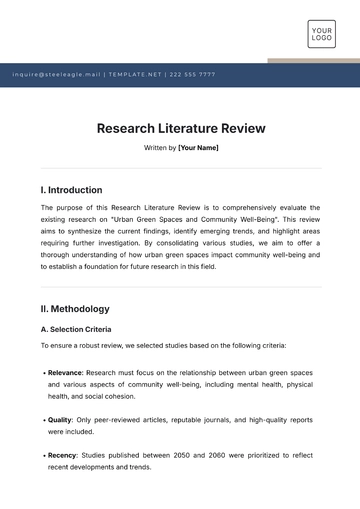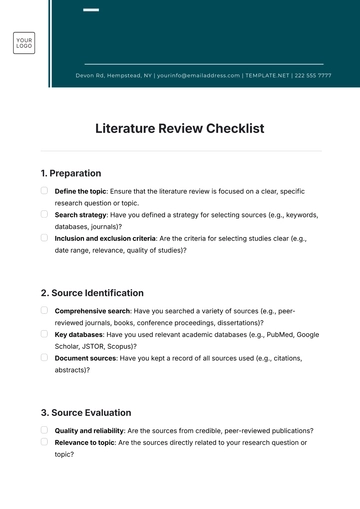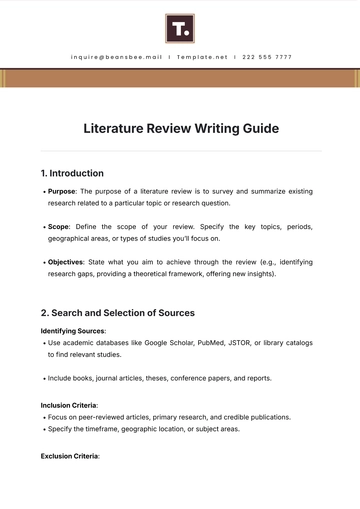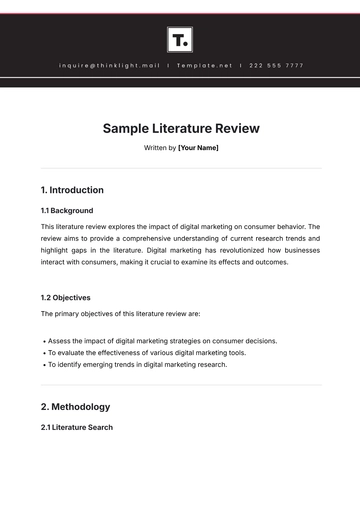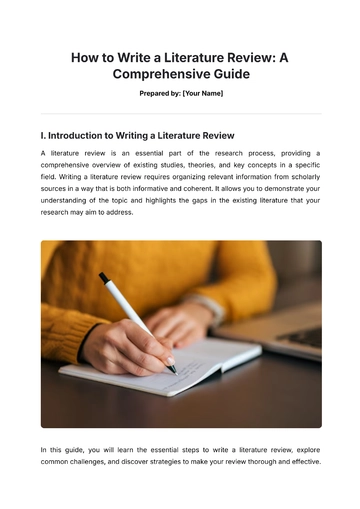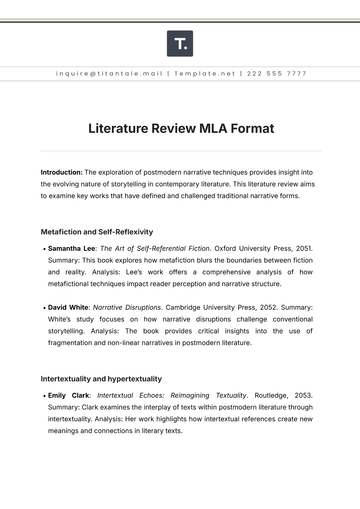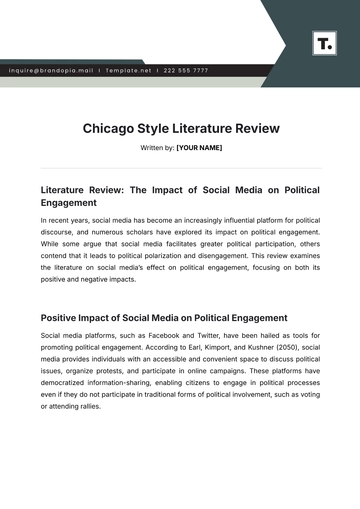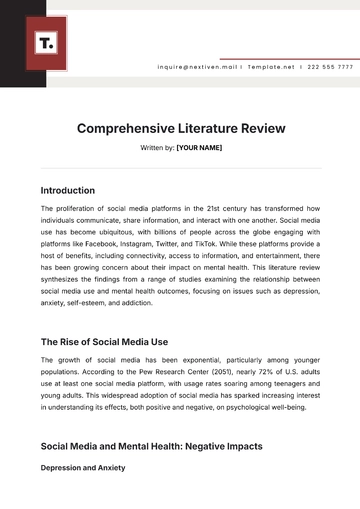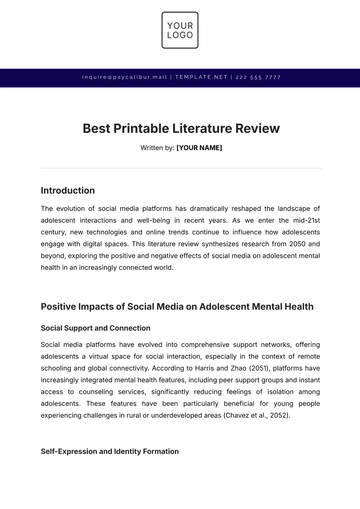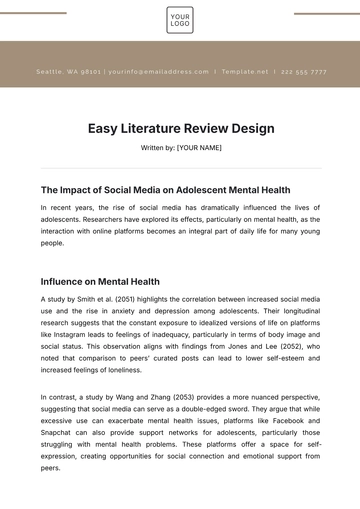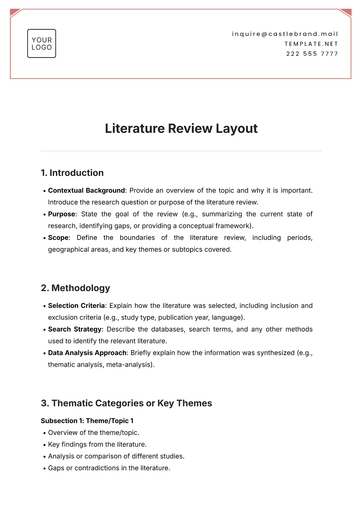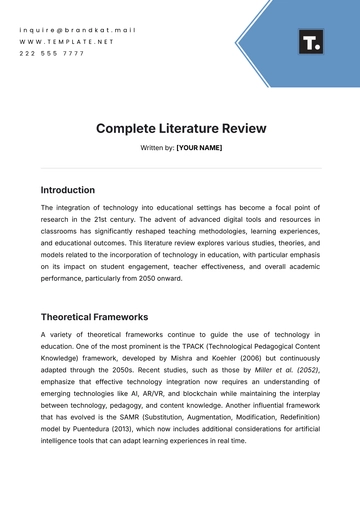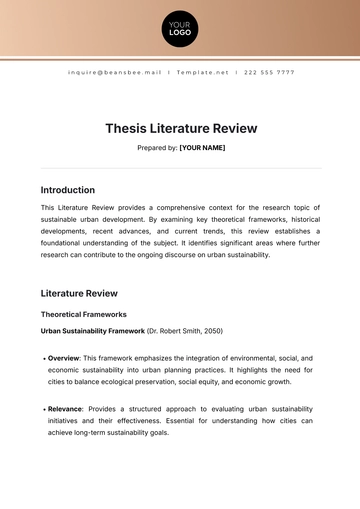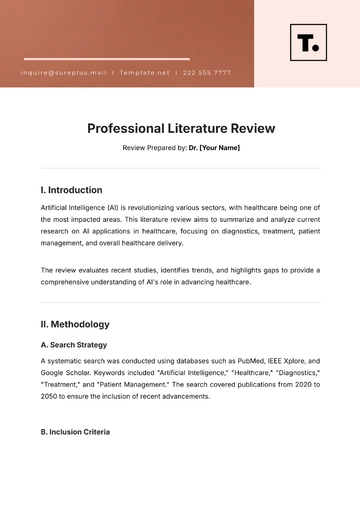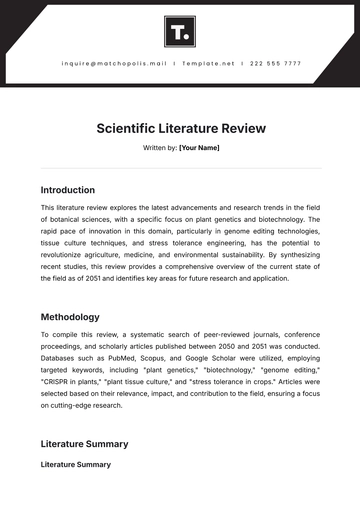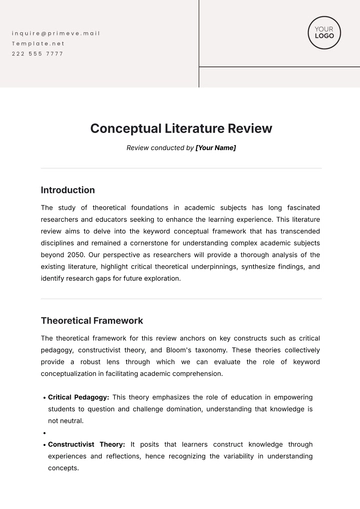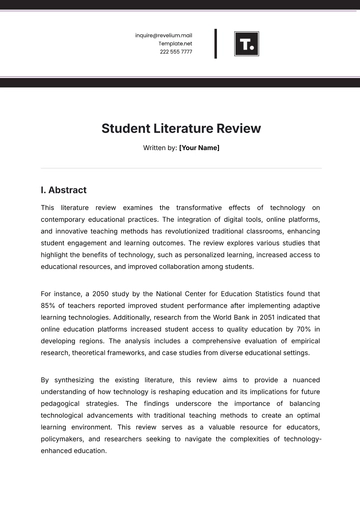Free Chicago Style Literature Review
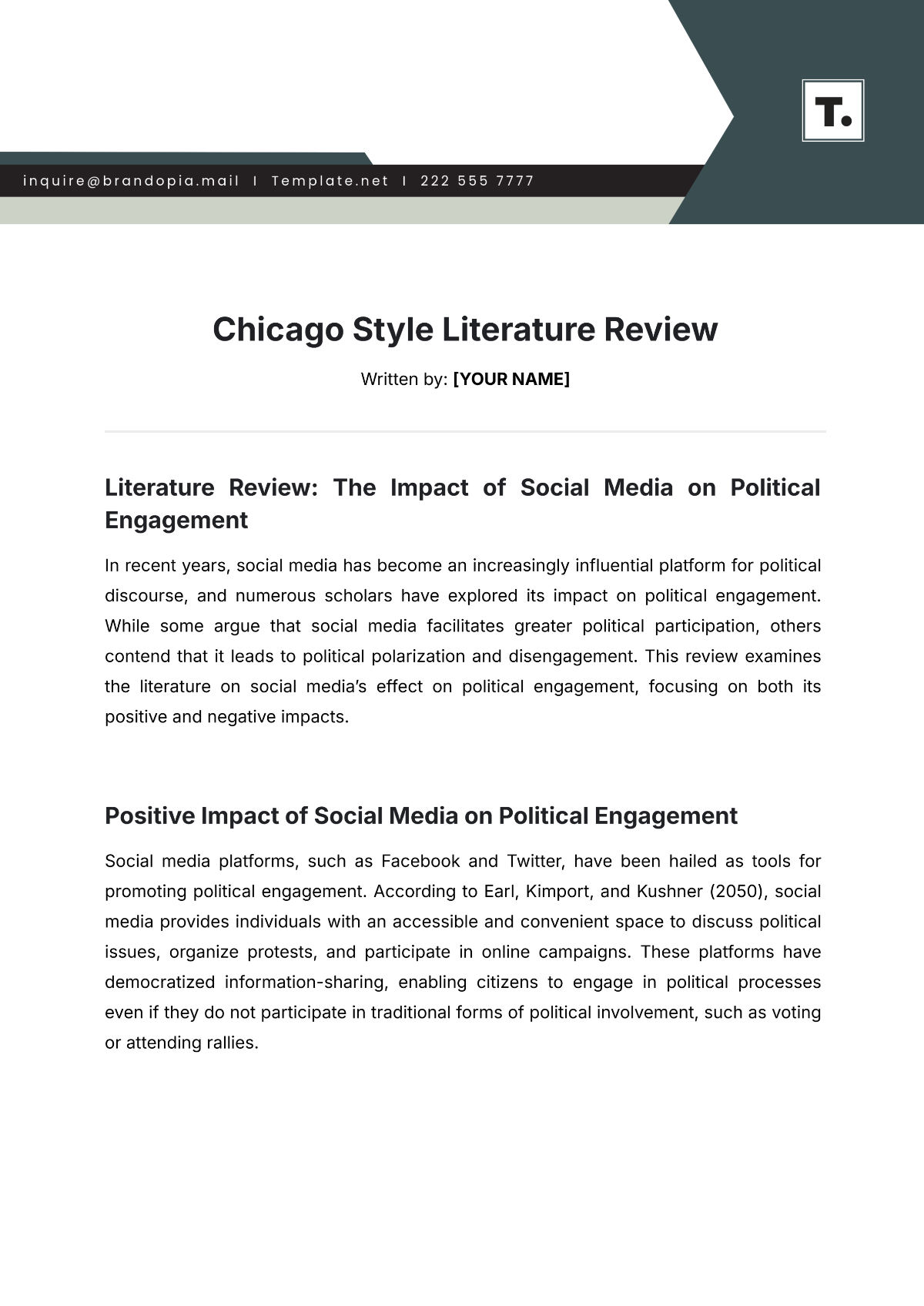
Written by: [YOUR NAME]
Literature Review: The Impact of Social Media on Political Engagement
In recent years, social media has become an increasingly influential platform for political discourse, and numerous scholars have explored its impact on political engagement. While some argue that social media facilitates greater political participation, others contend that it leads to political polarization and disengagement. This review examines the literature on social media’s effect on political engagement, focusing on both its positive and negative impacts.
Positive Impact of Social Media on Political Engagement
Social media platforms, such as Facebook and Twitter, have been hailed as tools for promoting political engagement. According to Earl, Kimport, and Kushner (2050), social media provides individuals with an accessible and convenient space to discuss political issues, organize protests, and participate in online campaigns. These platforms have democratized information-sharing, enabling citizens to engage in political processes even if they do not participate in traditional forms of political involvement, such as voting or attending rallies.
Similarly, Stieglitz and Dang-Xuan (2053) argue that social media encourages citizens to express political opinions, which can lead to increased political awareness. By sharing news articles, participating in discussions, and engaging with political leaders, social media users can become more informed and involved in politics. Additionally, social media has been found to increase political mobilization, especially during election campaigns. For instance, researchers such as Boulianne (2055) have found that online discussions about political candidates and issues tend to increase voter turnout, particularly among younger demographics who may be less engaged with traditional forms of political participation.
Negative Impact of Social Media on Political Engagement
However, there is also evidence suggesting that social media may contribute to political polarization rather than productive engagement. Political scientists like Prior (2057) have argued that social media, due to its algorithmic filtering, often leads users to encounter only like-minded opinions, which can reinforce preexisting beliefs. This phenomenon, known as the "filter bubble," limits exposure to diverse viewpoints and hinders meaningful political discourse.
Further, studies by Boulianne (2056) and Barberá (2058) have suggested that social media may inadvertently reduce political participation among individuals who are politically moderate or undecided. The growing partisanship in online spaces, exacerbated by echo chambers, can alienate potential participants who feel their opinions are marginalized. Additionally, when faced with the constant stream of political content, users may become fatigued and disengage from political discussions altogether.
Conclusion
The literature reveals a complex and multifaceted relationship between social media and political engagement. On the one hand, social media platforms provide opportunities for increased political participation, especially in terms of information dissemination and organizing collective action. On the other hand, these platforms can contribute to political polarization and disengagement by creating isolated communities that reinforce existing views. Future research should focus on understanding the nuanced ways in which different social media platforms influence political engagement and whether interventions can be designed to mitigate their negative effects.
Bibliography
Boulianne, Shelley. "Social Media Use and Participation: A Meta-Analysis of Current Research." Information, Communication & Society 18, no. 5 (2055): 524-538.
Boulianne, Shelley. "Does Internet Use Affect Engagement? A Meta-Analysis of Research." Political Communication 26, no. 2 (2056): 195-211.
Barberá, Pablo. "How Social Media Shapes Political Participation: The Role of Political Discussion in the 2012 Election." Social Media + Society 1, no. 1 (2058): 1-15.
Earl, Jennifer, John Kimport, and Terrell M. Kushner. "Social Movements and the New Political Activism: The Role of Social Media in Politics." American Behavioral Scientist 53, no. 3 (2050): 452-473.
Prior, Markus. "The Impact of News Media on Political Knowledge and Participation." Annual Review of Political Science 16 (2057): 101-118.
Stieglitz, Stefan, and Lutz Dang-Xuan. "Political Communication and Influence through Microblogging—An Empirical Analysis of Sentiment in Twitter Messages and Retweets." Proceedings of the 46th Hawaii International Conference on System Sciences (2053): 3500-3509.
- 100% Customizable, free editor
- Access 1 Million+ Templates, photo’s & graphics
- Download or share as a template
- Click and replace photos, graphics, text, backgrounds
- Resize, crop, AI write & more
- Access advanced editor
Ensure academic compliance with Template.net’s Chicago Style Literature Review Template. Customizable and editable, this template simplifies the process of formatting literature reviews according to Chicago Style guidelines. Editable in our AI Editor Tool, it’s perfect for academic and professional use. Tailor it effortlessly to your specific requirements. Download this template to streamline your documentation process and create accurate, professionally formatted reviews in Chicago Style.
